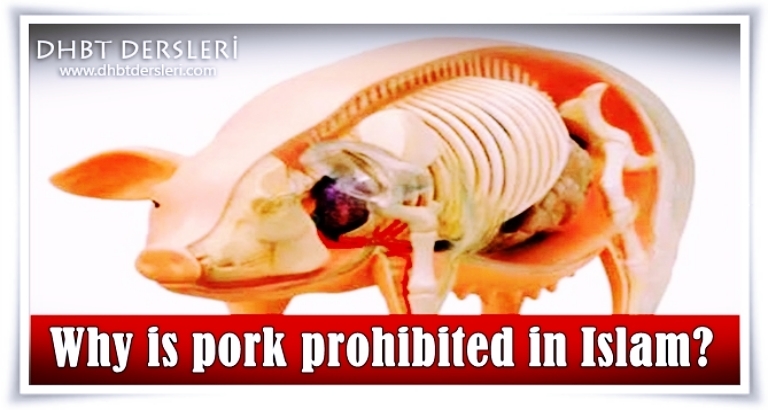Consumption of pork is forbidden in Islam per a prohibition in the book of Allah. A Muslim must not consume pork unless he/she faces the threat of death from starvation. (See the Qur’an Ma’idah 5:3; Baqarah 2:173; Ma’idah 5:3; ‘An`am 6:145; and Nahl 16:115).
Why is pork prohibited in Islam?
While most of the prohibitions and factors necessitating them are explained, this particular prohibition does not provide one.
But, first of all, one should not forget that our religion is a religion of unconditional submission to Allah.
Therefore, the reason behind some prohibitions might simply be a test of a servant’s submission to Allah’s will. However, this possibility does not prevent pondering on the reason for this particular prohibition.
Islam forbids the consumption of pork but does not seek to eradicate the species from Earth. On the contrary, pigs have been created for a purpose just like all other creatures.
The purpose of the pig’s creation could perhaps be classified into two categories:
1. The physical, bodily purpose: Pigs are fantastic scavengers and they have been assigned the task of removing waste from Earth.
2. The moral or spiritual purpose: The ban on consumption of pork falls under this category. What is actually forbidden through this prohibition is piggish behavior.
One of the obvious causes for prohibiting pork is health concern related to this animal. This finding, upon which both Muslim and non-Muslim scientists and scholars agree, is material necessity that cannot be overlooked or ignored.
One could also argue that there is a moral necessity for prohibiting pork consumption: one of the reasons behind the prohibition in question is “turning into a pig-like” person. As is known, pigs represent “irresponsibly boundless” species in the animal world.
We are what we eat. The moral message here to the believers through the prohibition of pork is “Do not be unbridled in your behavior or become a person lacking moral restraints.”
• Failure to choose one’s words wisely is piggishness of the tongue.
• Loss of control and the capacity to be led by one’s emotions amounts to emulation of pigs emotionally.
• Acting purely on impulse and doing whatever one wants is piggish behavior in activity.
• Lack of ability to control one’s behavior is another form of piggishness and leads to corruption of moral values.
Of all the animals, pigs embody boundlessness and unbridled behavior in their characteristics:
a) Excessive eating: Pigs are omnivores and are gluttonous by nature. They are unselective about what they eat. Pigs will eat more or less anything they come across, including feces, other animals, and all forms of garbage.
b) Unlimited reproduction: Pigs are amongst the most fertile of mammals. Larger pig litters can reach up to fourteen piglets, and boars reach puberty at six months of age.
c) Limitless mating: Pigs are not jealous and protective of their mates and will mate in an unbounded manner.
Thus, the message to believers carried in the pork prohibition is “Know your boundaries.” Using improper words, allowing emotions to overwhelm, and doing whatever comes to mind is one’s lack to recognize boundaries in speech, feelings, and behavior, respectively.
So, the real message given to the believers through banning pork is “O human being! Do not lose your moral boundaries, lest you come to resemble a pig.”

































